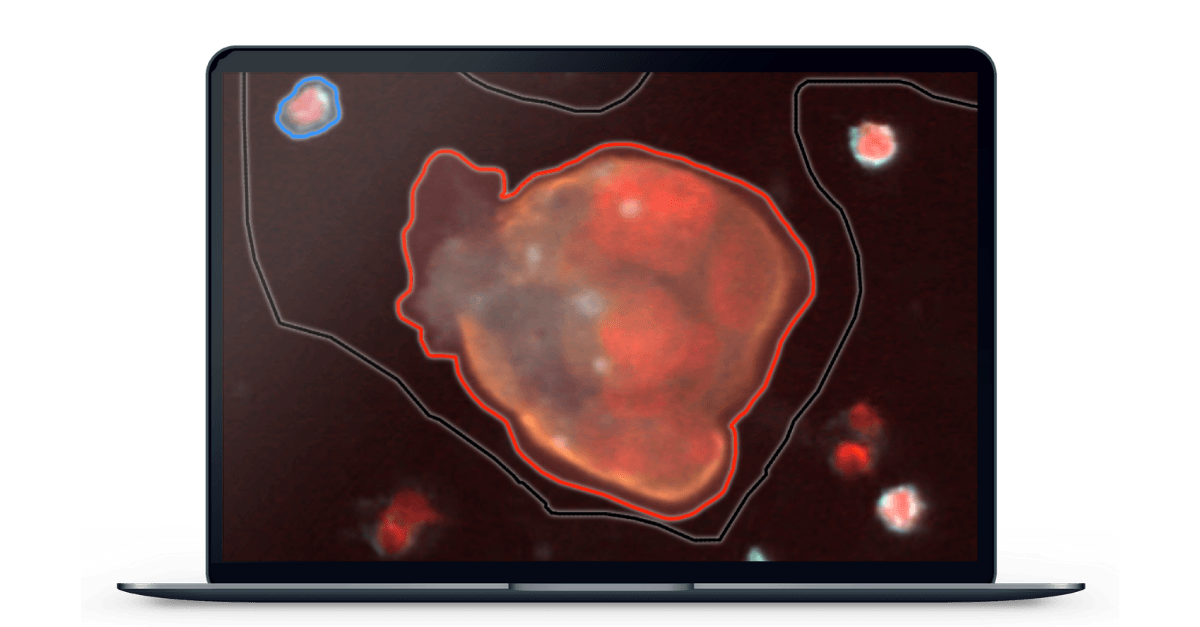Singapore, Helsinki -- Aiforia, a leading software company providing artificial intelligence (AI) solutions for medical image analysis, and X-ZELL, a clinical stage med-tech company aiming to make early, affordable cancer detection accessible to everyone, have entered into a strategic partnership to integrate X-ZELL’s novel rare cell detection technology with Aiforia’s deep learning AI software.
The collaboration’s long-term goal is to commercialise a novel, AI-powered method for early cancer detection that is based on a combination of X-ZELL’s award-winning rare cell detection system and Aiforia's cloud-based deep learning platform. Comprised of a series of integrated hardware and software modules, X-ZELL’s platform enables pathologists to isolate and visualise tumour-associated Circulating Endothelial Cells (tCEC) from a small, 10mL blood sample.
According to X-ZELL Founder & CEO, Dr Sebastian Bhakdi, tCEC could help clinicians detect different types of cancer in their early stages and even distinguish between aggressive and non-aggressive forms of the disease.
“Research has shown that tumours as small as 1mm aggressively grow blood vessels in order to survive. From here tCEC are shed directly into the host blood – making them the perfect target to detect clinically significant cancers early, when there is still time to act.”
The problem, he adds, is that tCEC are not only indistinguishable from healthy blood cells, but also exceedingly rare, which is why they were long considered undetectable in routine clinical practice.
Fusing patented, highly efficient removal of healthy blood cells with next-generation multiplexed microscopy, Bhakdi and his team have found a way to identify a single tCEC among five billion healthy cells and visualise the live cell on screen, where it can be analysed by a pathologist.
As a proof-of-concept, they went on to develop a tCEC test for the early detection of prostate cancer that is currently undergoing clinical validation in Singapore. Additional tests for lung, liver and colon cancer, as well as leukaemia, are in development.
In partnership with Aiforia, X-ZELL is now taking on the next challenge to make tCEC technology accessible to everyone – automatically examining the sample for tumour-associated atypical cells to streamline pathological analysis.
“We have perfected the workflow from blood sampling all the way to digitising the slide, and we have shown how useful it can be in the clinic,” explains Bhakdi. “But to make it work at scale, we need to be able to pre-analyse every image so pathologists will instantly know what to focus on – even if they work remotely. That’s where Aiforia’s unique AI expertise comes into play.”
Aiforia’s AI software has the ability categorize cells on a slide processed by X-ZELL and point out potentially harmful ones to the pathologist – automating an arduous task, thereby speeding up review time, and of course reducing the risk of error posed by visual bias. The AI-powered analysis supercharges the pathologist, giving them confidence in their decision-making.
“We have a solid foundation in providing powerful, user-friendly software for medical professionals to harness the power of deep learning AI to automate and therefore increase the speed and accuracy of medical image analysis across pathology, oncology and a variety of other disciplines,” says Jukka Tapaninen, CEO of Aiforia. “We are excited to combine our technical expertise with an innovative company like X-ZELL and help bring this ground-breaking new technology to the next level.”
According to Sebastian Bhakdi, the partnership between Aiforia and X-ZELL will not only benefit X-ZELL’s own tCEC research, but single cell pathology at large. “We always envisioned our technology as a platform solution for the detection and analysis of atypical cells, so we will also make it available for research use,” he says.
“X-ZELL has only just scratched the surface of what’s possible in the field of single cell pathology. In partnership with Aiforia, we are now bringing the concept into the 21st century. Digital pathology and remote diagnostics are the future, and together we hold the key to unlocking their full potential.”
*X-ZELL’s rare cell detection platform is currently available for Research Use Only, with a CE-IVD certified version expected in 2022
Contacts:
Sebastian Grote
Head of Marketing, X-ZELL
+65 9630 0706
sebastian.g@x-zell.com
Emma Vehviläinen
Head of Marketing, Aiforia
+358 40 667 5204
emma.vehvilainen@aiforia.com
About X-ZELL
Ranked among the most innovative health technology start-ups in the world,
X-ZELL fuses next-generation cell detection technology with cutting-edge Artificial Intelligence to isolate and visualise ultra-rare cells in blood and frozen tissue. In 2017, the company made global headlines when it demonstrated the ability to routinely locate tumour-associated Circulating Endothelial Cells (tCEC) in small, 10mL blood samples. Widely considered one of the most promising biomarkers for the early detection of clinically significant cancers, tCEC had previously been classified as undetectable in clinical routine. From its headquarters in Singapore, X-ZELL is aiming to make tCEC-based cancer screening accessible to patients around the globe.
Find out more at: http://www.x-zell.com/
X-ZELL Social Media